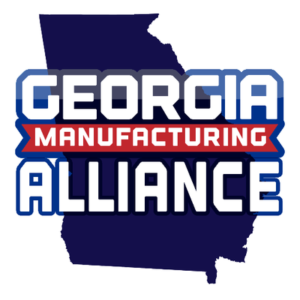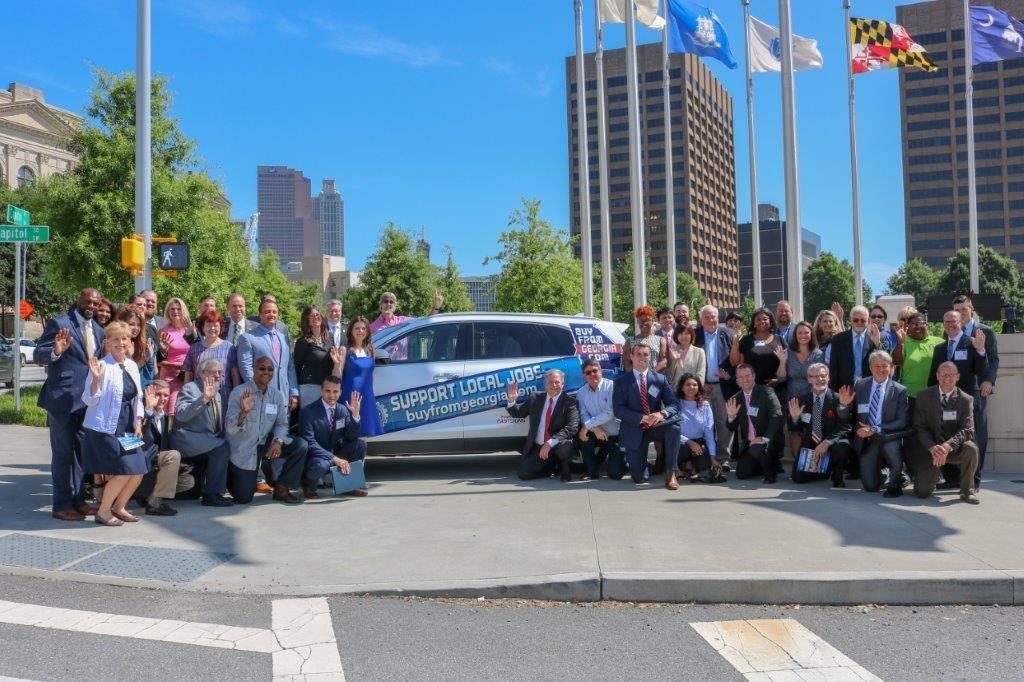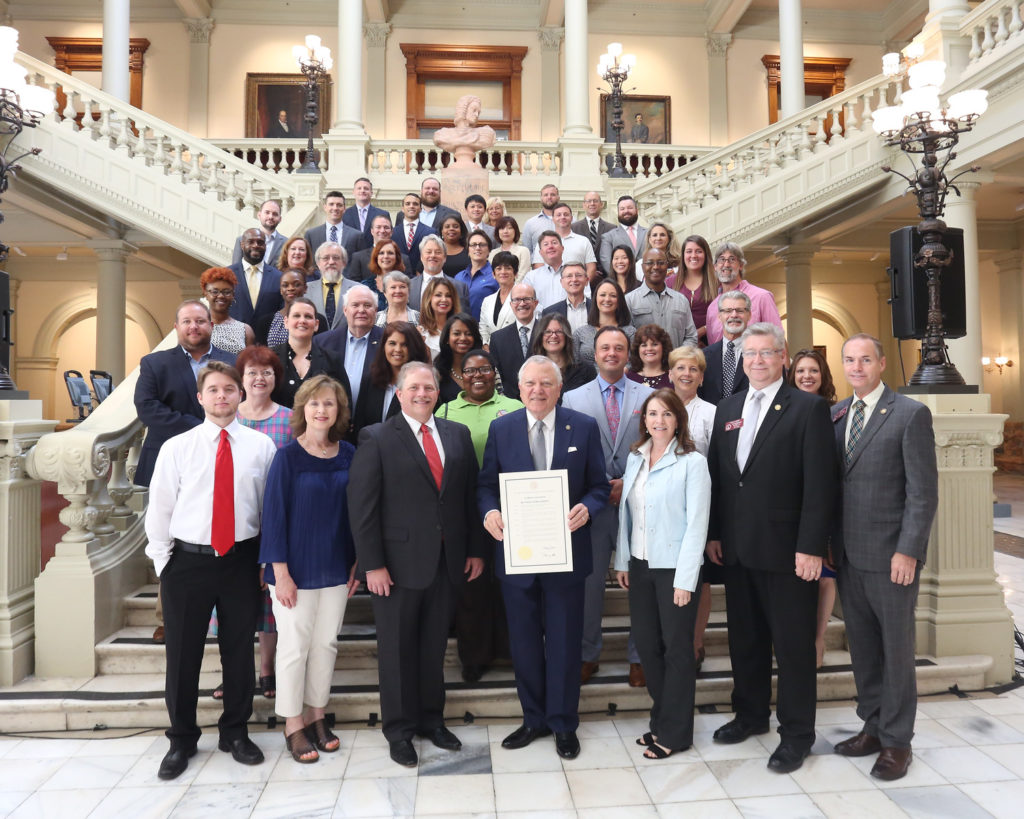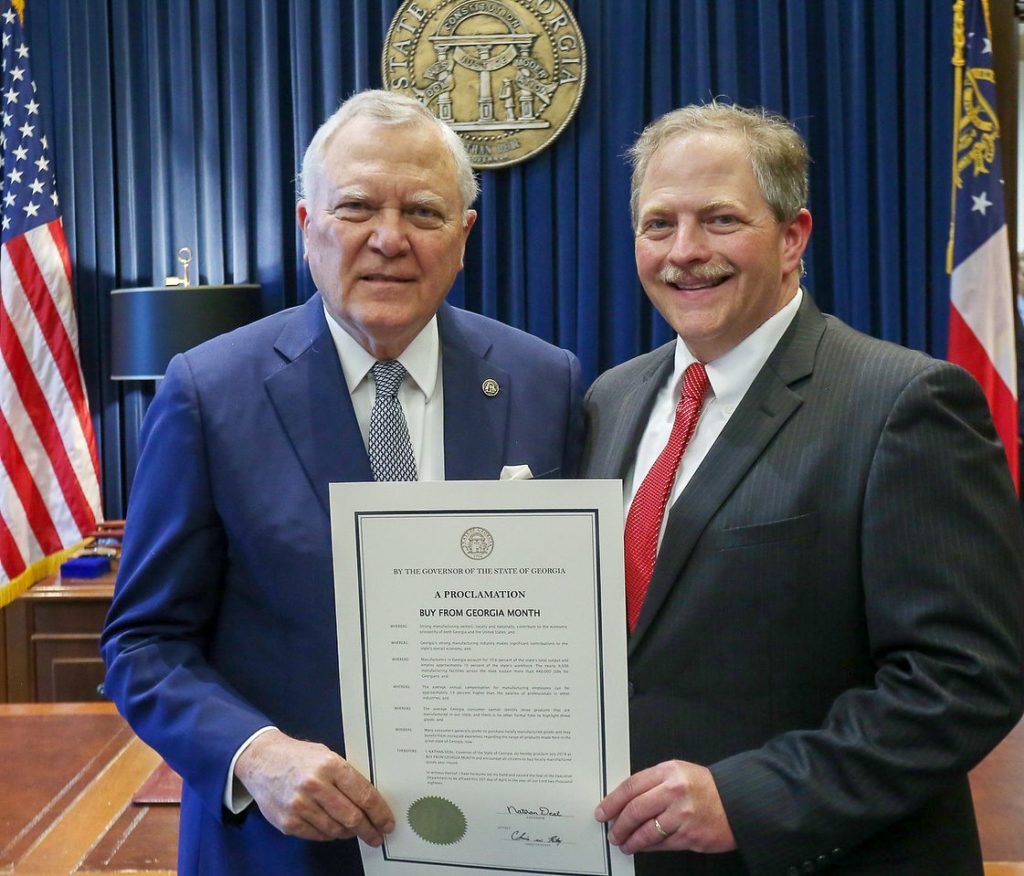For Manufacturers, For-Profit: Jason Moss of the Georgia Manufacturing Alliance Supports Members through Networking and Education
Do you know which products are manufactured near you? Can you name 10 manufacturers that operate in your state? Jason Moss, founder and CEO of the Georgia Manufacturing Alliance can, and he might take you out to dinner if you can, too.

Moss started the Georgia Manufacturing Alliance (GMA) in 2008 in response to what he perceived to be a lack of friendly, consistent events that educate manufacturers about production technology and trends. Ten years later, this for-profit association is thriving with 300 member companies that represent about 65,000 employees. GMA will host over 120 plant tours, educational session and networking events this year, to support the state’s manufacturers with an expanded focus on educating members about the consumer-based goods manufactured in Georgia.
We spoke with Moss about the origins of the Georgia Manufacturing Alliance, his decision to run the association as a for-profit organization, and the work GMA does to support manufacturing from both the production and consumer sides.
Association Adviser: Why did you start this association?
Jason Moss: I’ll take you back quite a few steps! I was in the Air Force during Desert Storm where I loaded bombs on F-16s. That wasn’t the best career move because there isn’t much demand for bomb-loaders in the civilian workforce.
So instead I got into AutoCAD [software] and drafting, and then engineering software sales in the late 90s. I transitioned from software sales to multi-level marketing for several years where I became relatively successful conducting weekend seminars for CyberWize, a multi-level network marketing company. My wife was amazed that people would pay to hear me talk! While I was in that space, I fell in love with business-to-business networking. It’s a lot more fun to network than it is to cold call. B2B networking is not high-pressure because you are just connecting with people and talking over the solutions you can offer.
After CyberWize, I went back into software sales and kept looking for a networking group for my main clients, manufacturers. There are several groups out there like the Society of Manufacturing Engineers, APICS and the Institute of Packaging Professionals that connect manufacturers. After talking with these different groups, I wasn’t satisfied with the consistency of their meetings. Like a lot of volunteer-run groups, I felt that their programming ebbed and flowed with the ability of association volunteers to plan and run events outside of their day job. It’s not wrong or right; it’s just how it is.
From my experience networking with manufacturers, I knew that they strongly expect to have a consistent product. With a given input, they will make adjustments until they get a consistent product. I found that my manufacturing connections were having a hard time dealing with the cyclical output of the associations that exist to help them. So I started my own organization to consistently provide a great networking product.
AA: When did you start GMA?
 JM: In February 2008, I kicked off my first meeting with 16 people. We talked about the importance of networking. Manufacturers typically avoid networking events because they feel like a fresh piece of meat in a piranha pit. They’ll go to a business event that’s sold as a networking opportunity for manufacturers, but what they would find is that they were one of three manufacturers who actually showed up and 47 salespeople would spend the evening trying to sell them on something.
JM: In February 2008, I kicked off my first meeting with 16 people. We talked about the importance of networking. Manufacturers typically avoid networking events because they feel like a fresh piece of meat in a piranha pit. They’ll go to a business event that’s sold as a networking opportunity for manufacturers, but what they would find is that they were one of three manufacturers who actually showed up and 47 salespeople would spend the evening trying to sell them on something.
The other reason manufacturers don’t like networking events is because they’ve climbed their career ladder but never honed their networking skills. So every month for our first two years, we collectively learned how to do an elevator pitch that would clearly state who they are and what they do. This basic training was exactly what they needed as manufacturers so they would get more value out of the networking events they attend. Armed with this new skill set, they began to enjoy the networking environment and began to grow their businesses.
AA: What happened next?
JM: Well from 2008 to 2010, our national economy tanked and our group’s size had plateaued. My team and I discussed how to keep this organization going. Several of my volunteer leaders had come to me and said, “We wouldn’t be in business were it not for the work we’ve gotten through this group.” I had no idea the alliance was making that much of a difference in people’s businesses. Based on this feedback, we knew we had to not only keep the group alive but grow it.
The next month I pulled all our volunteers together and said, “If we’re going to grow this, I need your help identifying people who would be potential members. Get out a pen and a piece of paper, and let’s make a list of products you know are created here in Georgia.” They wrote feverishly for three minutes but then put their pens down. No one could list more than 10. If industry professionals can’t name more than 10 manufacturers in their own state, the average consumer can’t either!
So we had our work cut out for us: Help manufacturers promote their business to in-state consumers, and help consumers know what is produced in their state and how they can support those companies. What if you knew that all AA and AAA Duracell batteries are made in Georgia and their sale supports 400 Georgian families? Would you buy Duracell over other brands? We hope so! If we can advocate for the purchase of Georgia-made products and help increase sales, we are helping Georgians be more successful and live better.
AA: What does GMA do to achieve those goals?
JM: We do plant tours, educational sessions about the manufacturing process and manufacturer networking events all over the state. All of these events shine a light on the manufacturing scene in Georgia.

We provide a service for every division in a manufacturing facility: trainings on HR, trainings on safety, on sales & marketing. So this way, front line employees and executives from all different parts of the company can plug in.
We also produce a Georgia Manufacturing Directory. I was surprised that a directory had never been produced, so we made one and it became a best-seller on Amazon. We mail a copy to the top 1,500 manufacturing companies in Georgia, and our member companies get to brag that they are listed in an Amazon best-seller!
The ROI for a business that joins GMA starts on day one of their membership. They get instant access to all of our events at a discount and a 100 word company listing in the Directory. Last year we hosted 115 events around Georgia that were attended by more than 3,000 people.
AA: That’s a lot! How does your staff manage that?
JM: Yeah, I didn’t get much sleep! In 2016, I hosted 85 events as a solo entrepreneur. In January 2017 I brought on my first staff member, and now I have two full-time and a couple of part-time staff. We’ve learned some lean processes to run these events, and we also have volunteer chapter directors in six areas around the state to run the local market. Volunteers are valuable to us but it’s our paid staff that really helps ensure we provide a consistent, predictable event every time.
AA: The Georgia Manufacturing Alliance is a for-profit organization. Why?
JM: When I was structuring this organization, I was told, ‘Build it as a non-profit.’ But all the paperwork required to legally operate a 501(c)3 organization was a lot of work, and I could not find any law that said an association has to be non-profit. I wanted to run GMA like a business with staff who would provide the consistent, predictable events our manufacturers expect because they are paid to do so. Being a for-profit association gives us the flexibility to respond quickly to market demands. We don’t have to run programming ideas through a board. If we want to print a directory, we do just that as long as it makes sense on our profit and loss sheet.
We could find no compelling reason to run the association as a non-profit. Our members appreciate how quickly we can bring ideas to fruition and how we connect like-minded manufacturers to learn from each other. I’ve never met anyone that told me they joined an association for the tax benefits they get from contributing membership dues to a non-profit. If the magic of a nonprofit is the tax deduction, that doesn’t hold a lot of water.
Our membership is 300 companies strong and running the association as a for-profit is just a different way of doing this!
AA: Where does your revenue come from?
JM: Sponsorships that range from $5,000 to $50,000 per year, memberships, fees from our events and annual conference. We’ll do 130 events this year and those attract an average 20 to 40 people per event. We are 100 percent supported by the industry and we are proud to say that we have never received one dollar of taxpayer funds to support our mission.
Does GMA officially lobby for the manufacturing industry?
JM: We don’t do any lobbying. None! The Georgia Association of Manufacturers does a fantastic job representing manufacturers in government. Our organization is designed to support the manufacturing industry by building community, facilitating learning, and sharing best practices with each other.
The only thing remotely close to government-related activity that our members do is one day a year we go to the [Georgia] capitol to take a photo with the governor for Buy From Georgia month, which is part of a movement to raise public awareness about what is produced in the state and encourage people to support local manufacturers. That photo will go on the cover of our July directory.

In partnership with GMA, we developed the Buy From Georgia website which lists hundreds of companies and the items they produce in Georgia. The intent is that consumers can see what’s produced in their state and hopefully choose to support these manufacturers. There’s no list of where things are manufactured – it’s simply not something the government or any organization tracks – so we put this site together by scouring Amazon and the rest of the Internet for Georgia-based manufacturers. You can purchase their products through an Amazon link on the Buy From Georgia site, which allows us to quantify the impact of our marketing efforts and progress toward our goal of supporting Georgia’s manufacturers.

AA: Where does the Georgia Manufacturing Alliance go from here?
JM: Where we go from here is to continue showing off Georgia’s manufacturers. We’re hosting 14 factory tours over 14 days in July. The tours are open to the general public so that consumers can learn how their products are made. When you see how something is made, it changes your relationship with the product and its supplier – hopefully in a good way.
Within five years we want to have more than 400 company members and get at least three contacts from each company to participate in at least one event throughout the year.
I think we can do it. We’re building a marketing campaign to encourage each member company to spread the news about GMA events more. We already do a good job of identifying what roles should attend which events, but we need to encourage people to talk more to different departments within their company about GMA and how attendance at our events could benefit them.
As we grow, we’re attracting more recognizable speakers at our events. For example, this year the CEO of Gulfstream will be one of our annual Georgia Manufacturing Summit keynote speakers. By 2020, I want to host 2,500 people at our summit. To make membership and attendance at our events worth the time, I plan to double my staff so GMA can continue providing the level of service our members expect. We want to provide a consistent membership experience as I originally set out to do. People remember how they are treated, so our customer service must remain top-notch, and I’ll invest the time and resources needed to keep it that way.
We can and will be the leader of this manufacturing renaissance by educating people about what’s made in their community and what impact it has on their local economy. We will continue to help manufacturers market themselves, and will continue to support the Buy From Georgia movement to make people aware of how they can support their neighbors.
I still ask consumers this question. “Who can name at least 10 Georgia manufacturers” and offer a prize: The person who can list 10 gets dinner in Atlanta on me. So far, I’ve only bought dinner for two people. I’ll keep offering this prize until it becomes too expensive; because that means GMA has done its job!


